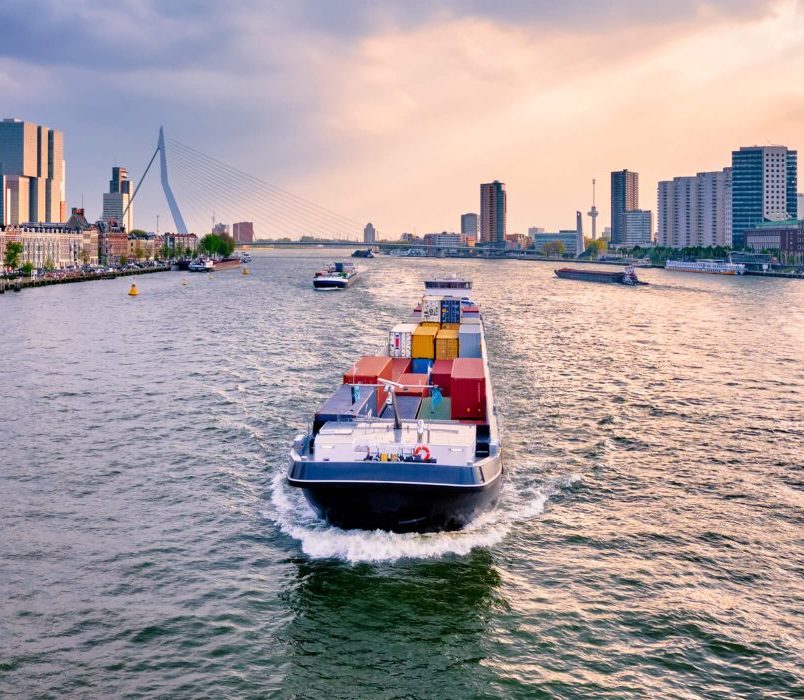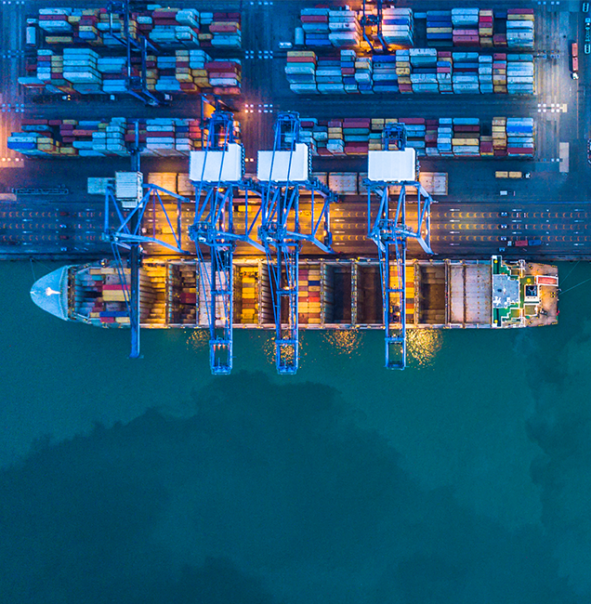Green Inland Ports: Enabling Sustainable Management and Development
Ecorys is conducting a study on the sustainability of inland ports together with CE Delft, Panteia, Planco, EICB, Pro Danube and Erasmus University Rotterdam. The general objective of the study is to identify and evaluate factors contributing to sustainable development of inland ports, as well as to propose solutions for the implementation of green objectives for inland ports paired with their economic development.
Inland ports are an essential part of the EU’s transport infrastructure along the core Trans European Transport Network (TEN-T). They also play a key role in achieving the objectives of the European Green Deal to reduce transport emissions with 90% by 2050. The European Commission commissioned a study which aims to support European inland ports to become zero-emission, sustainable hubs connecting Europe.
The project has a duration from three years, running from November 2022 to November 2025, in which the drivers for the sustainable development of inland ports will be identified and evaluated, and solutions for the implementation of green objectives for inland ports will be proposed. The study covers all TEN-T inland ports.
Inland ports have environmental impacts through vessels, port operations, port-city and potentially seaport connection activities. The study assesses the environmental impact of ports on their surroundings, looks at the role of digitalisation in becoming more sustainable and identifies opportunities to adopt inland waterway transport for urban mobility and short-distance transport.
The study will also explore how the key role of green inland ports in achieving the EU Green Deal can be further expanded by showcasing good practices on environmental performance, by presenting innovative ideas for urban and short-range inland waterway transport and by providing solutions to further optimise the use of digital services.
The study consists of the following five tasks:
Task 1: Mapping of Environmental Impacts and Energy Efficiency and Transition
This part of the study will examine the environmental impacts of inland ports and the potential to mitigate these impacts by applying more energy efficient technologies and circular processes.
Task 2: Analysis of urban mobility and short-range inland waterway transport
This part of the study will analyse ways of adopting inland waterway transport beyond the traditional purposes. The analysis includes the adoption of inland waterway transport for urban mobility and short-range passenger and freight transport, such as waterbuses, urban logistics, ferries, etc.
Task 3: Analyse how digitalisation can improve green and economically sustainable development
This part of the study will analyse how digitalisation can improve green and economically sustainable development of inland ports.
Task 4: Development of Environmental and Sustainable Management Systems (ESMS) tools and pilot implementation of ESMS in selected inland ports
The study will develop sustainability tools that will help inland ports to measure their environmental performance. The tools will be applied to at least 10 pilot projects. The impact of these tools will be shown through webinars and resources.
Task 5: Stakeholder Consultation
The research team will conduct interviews and surveys amongst a broad range of stakeholders. Multiple survey will be launched during the project, which provide stakeholders with the opportunity to contribute and to shape the future for the greening of inland ports. The surveys collect valuable data and insights, and provide the basis for follow-up in-depth interviews with stakeholders. Furthermore, a total of nine regional workshops and a final conference will be held. See the Green Inland Port website to contribute to the study.
For more information visit the Green Inland Ports website or contact our consultant Jasper Tanis.

6 November 2023
3 minute read
Sectors
Key Experts
Jasper Tanis
Senior Consultant



